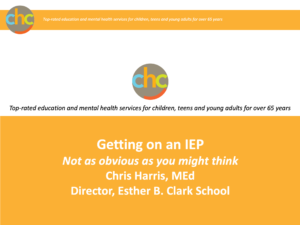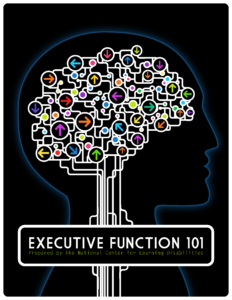What I Wish the World Knew About My Child’s ADHD
 ADDitude magazine asked readers to share what they most wish the neurotypical world would understand and respect about attention deficit disorder. Read more ›
ADDitude magazine asked readers to share what they most wish the neurotypical world would understand and respect about attention deficit disorder. Read more ›
 ADDitude magazine asked readers to share what they most wish the neurotypical world would understand and respect about attention deficit disorder. Read more ›
ADDitude magazine asked readers to share what they most wish the neurotypical world would understand and respect about attention deficit disorder. Read more ›
 Glen Elliott, PhD, MD, psychiatrist and former Medical Director at CHC, and Chris Harris, MEd, Chief Education Officer, discuss how behaviors associated with ADHD and anxiety may both occur in the same individual but also can mimic each other, leading to confusion about the best diagnosis and the best treatment approach. Read more ›
Glen Elliott, PhD, MD, psychiatrist and former Medical Director at CHC, and Chris Harris, MEd, Chief Education Officer, discuss how behaviors associated with ADHD and anxiety may both occur in the same individual but also can mimic each other, leading to confusion about the best diagnosis and the best treatment approach. Read more ›
 An IEP, or Individualized Education Plan must be in place for a student to receive special education services.
An IEP, or Individualized Education Plan must be in place for a student to receive special education services.
Chris Harris, the Director of CHC’s Esther B. Clark School, explains what an IEP is, the eligibility requirements for an IEP, and how it differs from a 504 plan. Learn about the types of goals that should be included in an IEP, accommodations, and how parents and guardians can be an advocate for their student. Read more ›
In this presentation, Chris Harris, the Director of CHC’s Esther B. Clark School, explains the primary types and the hallmark symptoms of ADHD and how they are manifested in home and school settings.
Learn the most effective practices for in-school and at-home management of ADHD. Read more ›
CHC’s Vivien Keil, Ph.D., and Ann Smith, Executive Director of Gifted Support Center, define what it means to be twice exceptional — that is, both gifted and challenged by a learning difference.
The presenters also discuss the mental health needs of the twice exceptional child, support strategies and treatment options. Read more ›
In this presentation from the Palo Alto Unified School District’s Family Leadership Summit, CHC’s Lisa Parnello builds a basic understanding of dyslexia: what it is, how it presents, and the type of instruction that benefits students with language-based learning differences. Read more ›
 New Penn State research suggests that children’s executive function deficits may be an important risk factor for academic difficulties.
New Penn State research suggests that children’s executive function deficits may be an important risk factor for academic difficulties.
Preliminary findings from a three-year National Science Foundation-funded project, recently published in Child Development, show that executive functions in kindergarten predict children’s mathematics, reading and science achievement, as well as their classroom behavior, in second grade. Read more ›
 Each of us navigates daily life — learning, work, recreation and relationships — thanks to intrinsic skills called executive functions. Read more ›
Each of us navigates daily life — learning, work, recreation and relationships — thanks to intrinsic skills called executive functions. Read more ›
 Think about the series of commands you might give your child on a school night: “It’s time for bed! Put away your toys, change into your PJs, and brush your teeth!” Maybe your child put away his toys and got into his PJs, but forgot to brush his teeth. If your child frequently loses track of tasks like these, it’s possible he may struggle with working memory. Read more ›
Think about the series of commands you might give your child on a school night: “It’s time for bed! Put away your toys, change into your PJs, and brush your teeth!” Maybe your child put away his toys and got into his PJs, but forgot to brush his teeth. If your child frequently loses track of tasks like these, it’s possible he may struggle with working memory. Read more ›